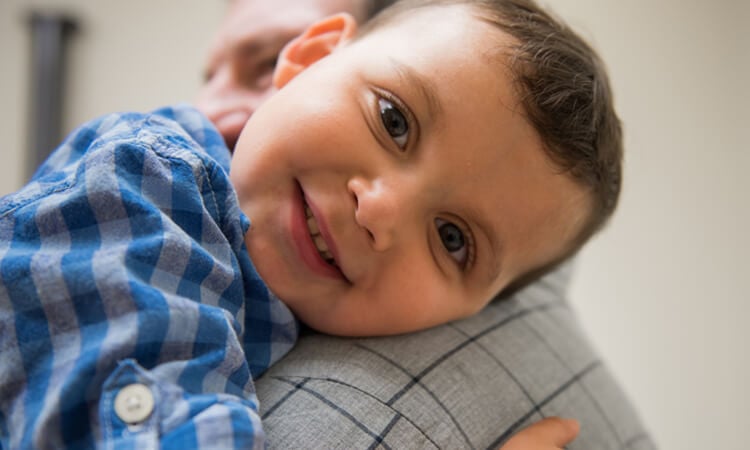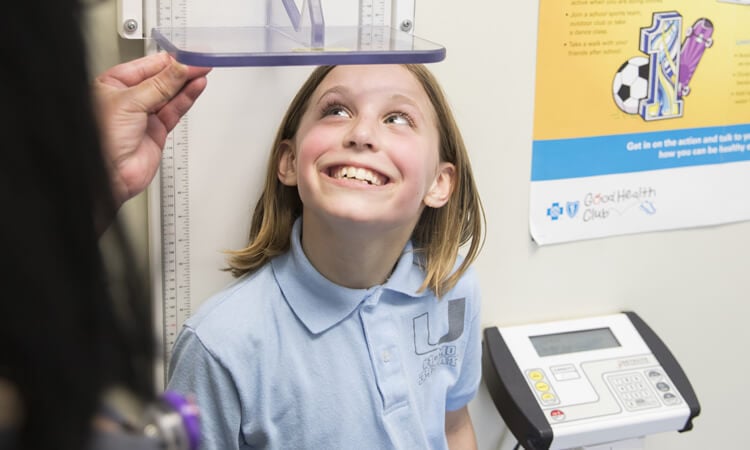Create Your Legacy
Planning a gift? Your legacy giving to Children’s Mercy creates generational impact
Legacy giving does not require a large income or vast estate. Legacy giving only requires a thoughtful intention to make a difference for kids by remembering Children’s Mercy in your will or estate plans.
Whether you give to Children Mercy through a transfer of assets from your estate or trust, a charitable gift annuity, selling a business or a gift of stock, every single gift helps to ensure access to the best care possible for every child regardless of their family’s ability to pay.
Your planned gift today will fuel another 125 years of a mission to transform the health, wellbeing and potential of children, with unwavering compassion for those most vulnerable.
*If you are are 73 or older and required to make minimum distributions (RMDs), a gift to Children’s Mercy can satisfy this requirement while making a big impact in your community.
Learn more about RMDsQuestions?
To learn more about legacy giving, please contact:
- Mark Haas
Director of Gift Planning
(816) 701-4339
giftplanning@cmh.edu - Michaela Norton
Senior Coordinator of Gift Planning
(816) 533-4577
giftplanning@cmh.edu
Have you already remembered Children’s Mercy in your estate or will?
If you have Children's Mercy in your estate or will, please contact Michaela Norton at giftplanning@cmh.edu. We would like to thank you for your commitment, learn more so we can honor your wishes and invite you to be a part of our Legacy of Care group.

Unique and common ways to plan a legacy
Including Children’s Mercy in your will, estate/trust documents, life insurance policy or retirement plan can be as simple as changing a beneficiary designation or making an amendment that honor your wishes. We are here to help explore the many ways to make a planned gift that’s appropriate and meaningful for your phase of life.

Gifts of stock
Giving appreciated stock can provide a large tax deduction and enable you to make a larger gift than you thought possible. Stock gifts allow you to invest in children’s health today or after your lifetime.
Directing your gifts
You can direct your gifts to The Children's Mercy Hospital Foundation or The Children's Mercy Hospital.
|
The Children's Mercy Hospital Foundation Planned gifts to the Foundation are used to create a named and/or restricted endowment or to support the unrestricted endowment. The Foundation is a 501(c)(3). The Children's Mercy Hospital Foundation |
The Children's Mercy Hospital Gifts to the hospital may be undesignated to support the current needs of Children's Mercy or designated to a particular program or area of interest. The hospital is a 501(c)(3). The Children's Mercy Hospital |
Language for your will, trust or estate
The following sample bequest language can be used to make a gift to support Children's Mercy in an estate plan.
|
Step 1: "To the Children's Mercy Hospital Foundation" OR "To the Children's Mercy Hospital." |
Step 2: "the sum of $ ______" OR "______% of my estate." OR "The following property ..." |
Step 3: "to support ______." OR "to establish the ______." OR "to fund the ______." |
*We recommend that a designated bequest be made in the broadest terms possible. This will ensure all gifts continue to have the greatest impact.
The Gallaghers share a legacy of love

When Terrence and Diane’s daughter Elizabeth first visited Children’s Mercy Kansas City at 6 months of age in 2000, they had no idea their lives would be changed forever. Throughout their time as a patient family at the hospital, Terrence and Diane both became involved beyond being the parents of a patient. Their daughter, Elizabeth, passed away in June of 2019 at nineteen years old.
“We both felt very strongly that we could honor Elizabeth and her spirit by sharing our time, talent and treasure to support Children's Mercy,” Diane says.
Read the Gallaghers story